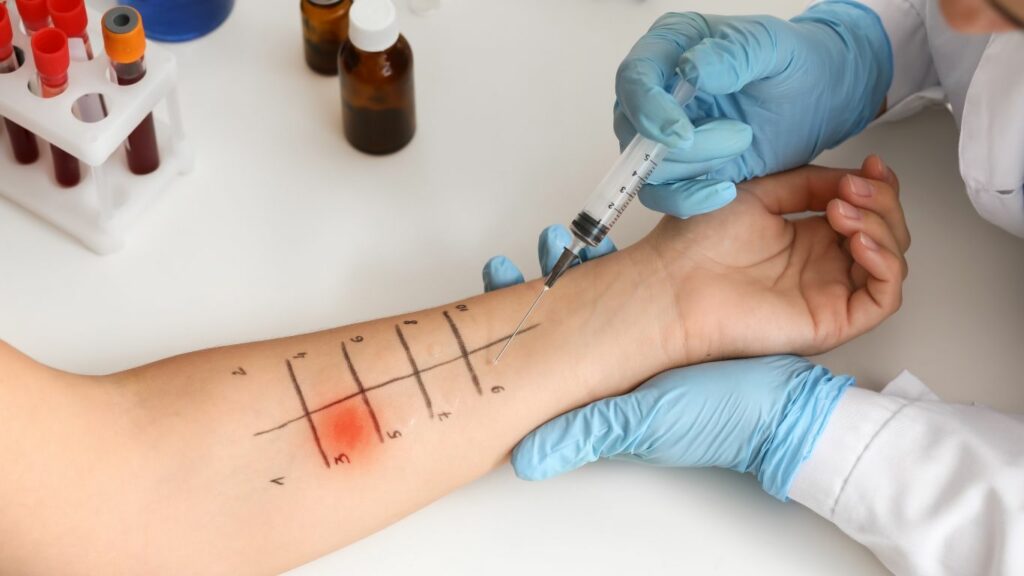Accurate Allergy Testing for Better Health and Comfort
Allergies are common conditions affecting millions of individuals worldwide. Whether caused by food, pollen, pet dander, or other substances, these reactions can significantly impact daily life. Allergy testing plays a vital role in identifying specific triggers and empowering individuals to take control of their health.
The Need for Allergy Testing
Unexplained reactions like persistent sneezing, itchy skin, or breathing difficulties might be linked to allergies. Allergy Testing provides a reliable way to pinpoint allergens that trigger these symptoms. This information is critical for creating an effective management plan tailored to individual needs.
Types of Allergy Testing
There are various methods used to detect allergens. Each has its advantages, depending on the suspected allergen and the individual’s medical history. Below are the most commonly used techniques:
Skin Prick Testing
This involves applying small amounts of suspected allergens to the skin using tiny needles. A reaction such as redness or swelling indicates sensitivity to the substance. It’s a quick and straightforward method widely used by healthcare professionals.
Blood Testing
This type measures the immune system’s response to allergens by checking the presence of antibodies in the blood. It’s especially useful for individuals with skin conditions or those unable to undergo skin tests.
Patch Testing
This test identifies allergens causing delayed reactions, such as certain chemicals or metals. Small patches containing specific substances are applied to the skin and observed over a few days for any adverse reactions.
Elimination Diets
For food-related allergies, elimination diets are often recommended. Suspected foods are removed from the diet, and then gradually reintroduced while monitoring for symptoms. This approach helps pinpoint problematic foods.
Symptoms Indicating the Need for Testing
Symptoms that might warrant allergy testing include:
- Frequent sneezing or nasal congestion
- Persistent skin rashes or hives
- Difficulty breathing or wheezing
- Swelling around the face, eyes, or throat
- Chronic digestive issues such as nausea or bloating
Recognizing these signs early can prevent more severe complications and improve overall quality of life.
How to Prepare for Testing
Preparation can influence the accuracy of test results. Here are some steps to consider:
- Avoid taking antihistamines or certain medications before testing, as they may interfere with results.
- Discuss any existing medical conditions with your healthcare provider.
- Keep a detailed record of symptoms and potential triggers to share with the testing professional.
Post-Test Guidance
After completing allergy testing, the next steps involve understanding the results and implementing a plan to reduce exposure to identified allergens. Treatment options might include:
- Medications such as antihistamines or corticosteroids
- Allergy shots or immunotherapy for long-term relief
- Lifestyle changes like modifying your environment or diet
The Role of Allergy Testing in Preventative Care
Testing not only identifies current triggers but also helps in anticipating future reactions. This proactive approach supports overall health and reduces the likelihood of severe allergic events.
Finding a Trusted Allergy Testing Provider
Choosing the right professional is crucial for accurate testing and reliable results. Look for experienced healthcare providers who specialize in allergy diagnosis and management. Ensure they use modern techniques and provide clear explanations of the testing process.
How Allergy Testing Supports Families
Testing is not just for individuals. Families, especially those with young children, can benefit from a clear understanding of potential triggers within the household. Shared insights promote a healthier and safer living environment for everyone.
Frequently Asked Questions About Allergy Testing
Who should consider allergy testing?
Anyone experiencing persistent symptoms like sneezing, hives, or breathing difficulties, or those with a family history of allergies, should consult a healthcare provider.
Is allergy testing safe for children?
Yes, many forms of testing are safe for children and can help address allergies early, preventing complications.
How long does it take to see results?
Skin tests often show reactions within 15–30 minutes, while blood test results may take a few days.
Can allergies be cured?
While allergies cannot be completely cured, they can be managed effectively through treatment and lifestyle adjustments.
Conclusion
Allergy testing is a powerful tool in identifying the substances that may be causing discomfort or health challenges. Understanding your unique triggers allows you to take meaningful steps toward relief and prevention, leading to a healthier and more comfortable life.














Post Comment